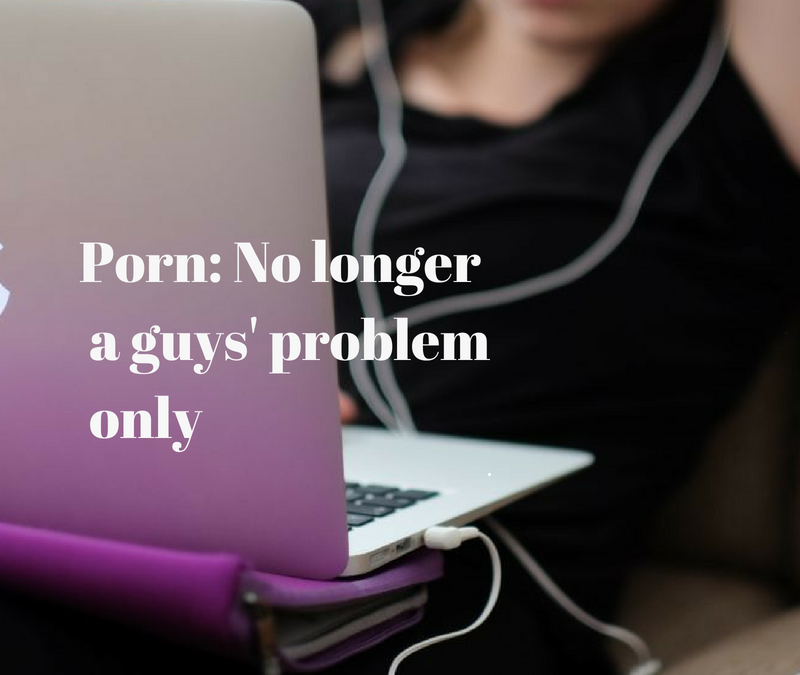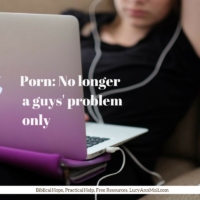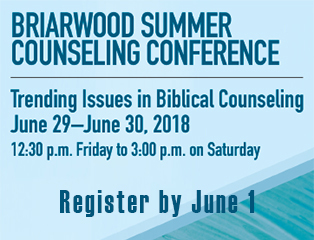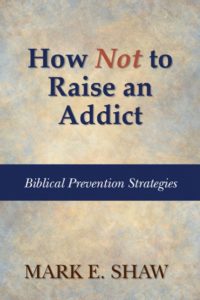
by Lucy | Jan 22, 2019 | biblical counseling, emotions, whole health wellness |
Food cravings can come on quick, right? You’re driving along singing to KLOVE or whataver, and out of nowhere food cravings strike.You may crave a Snickers or chips or a Ding Dong. Or you may crave strawberries!
And up the road a 7-Eleven beckons.
In this short article, let’s look at…
- Biological food cravings versus emotional food cravings
- A biblical solution to food cravings
Choose Your Choice
So what should you do when hit by food cravings?
A. Try your very, very best to ignore them.
B. Proceed to the 7-Eleven and get the goodies..
Well, it depends! Biological food cravings differ from emotional food cravings.
Click & Tweet!
It’s wise to fill the biological kind because your body needs what is craves. Just think of how delicious a glass of water is when you are super thirsty. So when you fulfill this type of craving, you’ll think and feel better. But fight the temptation of emotional food cravings. If you cave, you’ll feel worse, and you’ll miss out on God’s best too.
So whatever you eat or drink or whatever you do, do it all for the glory of God. 1 Corinthians 10:31
Biological or Emotional?
Here’s a simple what to tell whether your food cravings are biological or emotional
Click & Tweet!
:
When you have a biological food craving and fulfill it, you feel nourished. And it doesn’t take much food to meet such a need either. One bagel, a wedge or two of low-fat cheese, or a couple of chocolates–that’s it.
But emotional food cravings aren’t about food. Giving in is an attempt to meet a need apart from God. That’s right: An emotional eater looks for comfort in food. Sometimes it follows “I’m a loser” self-talk.
Solution to Food Cravings
The good news is by obeying and trusting God, you can have victory over food cravings.
You make this break when you begin desiring what God desires and, with God’s help, change your heart. His power helps you make good and godly food choices, straighten out your thinking on food, and practice, practice, practice. A great resource for we who mess up — and this is all of us, right? — is Love to Eat, Hate to Eat by biblical counselor Elyse Fitzpatrick.
God wants you to live life based on truth, not emotions. The truth of who he is. The truth of who you are. His truth is sure.
But our emotions go up and down like an elevator. Now emotions are fine; God gave them to us. Just be sure you don’t let them yank your around. Rather, live out truth.
7 Quick Stop-Craving Tips
Here’s truth talk on healthy eating. Yes, you’ve heard it before … except maybe the last one … but it’s the best.
- Choose water over coffee and soda pop.
- Shrink your portions by using smaller plates.
- Limit your consumption of sugar.
- Skip foods with ingredients you cannot pronounce.
- Sit down during meals.
- Eat slowly.
- Remember eating becomes sacred when it becomes worship.
Remember the Bible verse I mentioned? So whatever you eat or drink or whatever you do, do it all for the glory of God. Let it guide your choices.
And when you do, then everything — from washing dishes and sweeping floors to writing blog posts to selling — can be worship. As long as you line up your thoughts with God’s, the simplest things become sacred.
And so it is with food.
Counseling Hearts to Hope,


by Lucy | Jun 13, 2018 | biblical counseling, Counselor Resources, emotions, relationships, thoughts |
Women and porn: pornography is not a guys’ problem only. It’s growing exponentially among women, including Christians. In fact, every week or two I counsel yet another woman who struggles with porn.
Skewed Statistics
Truth be told, the statistics on women and porn use fail to tell the full story.
Click & Tweet!
Conservatively, one in five women and girls consume porn. The problem with the numbers starts with defining pornography. Yes, porn includes explicit photos and video. This is hard-core pornography. But there’s other forms!
What about erotica like the 50 Shades of Grey novel? Or how about racy romance novels? Or a Victoria’s Secret catalog? And does sexual fantasy count? Yes, yes, a hundred times yes.
In the words of author-blogger Jessica Harris, a former porn addict:
Pornography isn’t just stored on a computer or found in the pages of a magazine. It buries itself in the mind as memories. In some ways, your own body can serve as a source of pornography.
You may find this blog post uncomfortable to read. Perhaps you’ve already clicked close (and aren’t reading this now). Maybe you even unsubscribed. 🙁 But this topic is essential to know: Your daughters and granddaughters run into pornographic enticements. Every. Single. Day.
Generation Gap!
When it comes to women and porn, there’s a huge difference in porn use and age. Blame the Internet and smart phones.
Says Harris:
Walk into a room with a multi-generational group of men, and you can pretty much assume that the stats on male porn use are going to hold true throughout the generations in the room. Sure, the Baby Boomers grew up on Playboy and the Millennials grew up on smart phones, but still there’s this idea that pornography has been an issue for men for generations.
That is not the case for women.
If I walk into a room with a multi-generational group of women, my first and foremost concern is always to bridge the gap. Because the Baby Boomer women grew up in a time when pornography wasn’t really accessible to them. Nor was it made with them in mind. Their husbands might have been slinking around with magazines stuffed in brown paper bags, but they were not.
Millennial women, on the other hand, came of age at the time of the internet. Not only could we stumble upon a man’s porn stash, now we could access new content all on our own.
Click & Tweet!
Videos even. Without having to subscribe to the adult channels on cable.
Here’s her full post on what the statistics are NOT telling you about women and porn.
Change Is Coming
 If you hope to gather information about women and porn, you might Google “women and porn” or choose a variation: porn use among women, statistics on women addicted to porn, and so forth. And you’ll get very few hits.
If you hope to gather information about women and porn, you might Google “women and porn” or choose a variation: porn use among women, statistics on women addicted to porn, and so forth. And you’ll get very few hits.
But this is changing.
Among the few resoures is Heath Lambert’s podcast on “Women and Pornography.” You can hear the podcast or read the transcript. There have been a few chapters in biblical counseling books and a booklet or two. I hope to write a book on this subject, God willing. I have a heart for women hooked on porn. Even though it isn’t my story — anxiety and panic attack is part of mine — porn had its hooks in my brother and figures into his binge drinking and also his death. But that’s a story for another time.
Conference Talk on Women and Porn
 At the end of June I have three talks at Briarwood Summer Counseling Conference: “Trending Issues in Biblical Counseling.” One talk is on self-injury (i.e., cutting and other forms of self-mutilation). And another is on freedom from panic attacks. The third is “Breaking the Bondage of Pornography” (a women only talk). There’s a similar talk for pornography and men.
At the end of June I have three talks at Briarwood Summer Counseling Conference: “Trending Issues in Biblical Counseling.” One talk is on self-injury (i.e., cutting and other forms of self-mutilation). And another is on freedom from panic attacks. The third is “Breaking the Bondage of Pornography” (a women only talk). There’s a similar talk for pornography and men.
I am so happy that I get to speak to female counselors on this topice. With the explosion of internet availability, an ever-increasing number of women are seeking help with porn/masturbation. They often see no way out and have deep guilt and shame. Click here to see the schedule.
Counseling Hearts to Hope,


by Lucy | Mar 19, 2018 | biblical counseling, emotions, relationships |
There’s an addict addict in your home, and he (or she) is a loved one, and you need help. So what should you do? Guest writer Julie Ganschow, a biblical counselor listed on Heart2Heart Counselor Directory, shares understanding and direction. Her article appeared first here on her website and is used with permission.

When you learn your loved one is an addict it rocks your world. The first thing you have to understand is that life will never be the same. Whether the addict is your spouse or your child, your life is now going to be different. I realize that is a rather hopeless statement on face value, but it doesn’t have to be.
Life not being the same doesn’t mean it will always be bad and chaotic; it means it will be different.
The realization that your spouse or child is an addict is horrifying and terrifying. Suddenly all the crazy things that have been happening make sense. Their moodiness, anger or rage, isolation, disappearing for periods of time, financial problems, secrecy, all these things come together in an ugly realization.
When you really think about it, life has not been “the same” for a while now. The difference is, now you can identify the reason why. Now you can make changes that will help you and your family—including the addict—to adjust to the changes.
Yes, You Can Move Forward
As terrifying as learning the truth about your loved one is, there is something strangely comforting about understanding the reason behind all the crazy things that have been happening in your lives. Now you can arm yourself and become informed about what you are dealing with. You can learn how to respond and what not to do. So while life will never be the same, and no one ever wishes for these kinds of changes, you can now at least meet life on life’s terms and deal in reality. Accept what you are dealing with and that you will grieve and endure suffering in this process.
You have taken steps into suffering and sorrow already. Having a loved one that is addicted to alcohol or drugs tends to be seriously distressing.
Having an addict in the family causes problems in a wide range of areas. An adage that you need to remember is, “Addicts don’t have relationships. They take hostages.” An addict is interested in having a relationship with only the substances that he ingests. There is no room in his heart for a relationship with any person that will detract or distract him from pursuing what he really loves: His addiction.
The people in the addict’s life are tools to help him get what he wants which is drugs or alcohol. People are there to be used. I won’t deny that the addict may still love you on some level, but if the choice is you or the substance he ingests, any good addict will choose the substance over you. This is why in families the addict can cause such a disruption. They are highly manipulative, skilled in lying, and playing on the sympathetic heartstrings of those who love them. When they are denied what they want, you see their true love and allegiance come out as they scream, and tantrum, and threaten, and rage against anything and everyone that gets in the way of them getting high.
Why ‘Stop it’ Won’t Work
The addict’s life becomes all about self-gratification – meeting the felt needs of excitement, pain relief, escape, or comfort. They are inward focused and all that matters is getting their needs met in whatever way possible, whether it is begging, borrowing or stealing from you. The pursuit of self-gratification becomes all-consuming.
We consider attaching the label “addict” when a person’s desires have become idols. The addict is an idolater because he worships something other than God.
We have been created to worship God, but the addict’s sinful lusts have driven him to worship and idolize other things; the things of the world. This is why having an addiction is a kind of worship and why addiction is a worship disorder. The addict has a heart/soul problem, not a medical or psychological problem.
Continually feeding the idol of drugs or alcohol will eventually create a physical dependency, but the heart which Jeremiah. 17:9 identifies as self-focused, deceptive and desperately wicked, has been enslaved long before the body becomes addicted. The addict’s heart—his thoughts, beliefs, and desires—were hooked first.
The mind is focused on the flesh. Therefore it becomes hostile to the things of God, and the person becomes a commandment breaker and very often a lawbreaker (Romans 5:8).
“Addiction” becomes a self-perpetuating cycle of self-worship and self-abuse as the addict becomes a slave of self. What he or she once controlled, now controls them.
Click & Tweet!
What You Can Do
While you can’t stop them from sinning, you also don’t want to continue to do things that will enable them to get high or drunk. The phrase “don’t be an enabler” may be familiar to you as coming from the 12-step world of Al-Anon. Don’t discard the principle because you don’t like the source. Other words for enabling are: allowing, permitting, empowering, aiding, assisting, facilitating, making possible. In other words, don’t willingly help them to get high, and don’t do things that make it easier for them to do so.
Make financial boundaries: Implement boundaries to detach yourself financially from your addicted loved one. You do not control whether the addict uses or not, but you can control whether (or how much) you contribute to funding the addict’s chemical use.
Do not give money to your addicted loved one. (Most people I counsel this way refuse to implement financial boundaries. The result is usually more of the same.) Do not provide vehicles, insurance funding, or tuition to addicted persons. I commonly see parents let addicted children live in their homes rent free. Ousting the addict into independent living will not necessarily stop chemical use but it will require them to divert more money from funding their addiction to paying for their independent room and board.
If your son, daughter, or spouse makes the decision to live as a homeless person, it will hurt you terribly.
But please understand that they will do this until it is time for them to change. You cannot change them or those circumstances. It will not help them for you to give them a bed in your home if they continue to live the lifestyle of an addict. In fact, you will be hurting them.
Allow natural consequences: The emotional struggle to truly turn the addicted loved one over to God and the fearful “natural consequences” that the addict may encounter (or possibly die from) such as crime, personal neglect, or intoxicated accidents commonly prevents family and friends of the addicted person from truly “letting go.”
This requires a leap of faith, and constitutes a trial for friends of the addicted person.
I have heard transformed (repentant) former addicts refer to it as “coming to the end of one’s self.” Often a similar dynamic holds true for the family and friends of the addicted person, and their unwillingness to trust God in the full vent outcome for the addicted person. This may seem harsh and unloving, but I assure you, pain is a strong motivator for change.
If you are in such circumstances, please seek help from a knowledgeable Biblical Counselor for yourself and your other family members to deal with the pain and resulting emotions from having an addicted-idolater in your family.

Resources for YOU!
Books:
Divine Intervention: Hope and Help for Families of Addicts
The Heart of Addiction by Mark E. Shaw
Addictions: A Banquet in the Grave by Ed Welch
Crossroads: A Step-by-Step Guide Away from Addictions by Ed Welch
Counseling:
If your loved one is an addict, you are on a hard road and you need help too. Contact me to schedule a no-cost 15-minute consultation to see how biblical counseling can help you.
Counseling Hope to Your Heart,

by Lucy | Jan 16, 2018 | biblical counseling, book reviews
 Addiction? Is your kid at risk? In Mark Shaw’s booklet How Not to Raise an Addict, you learn the 5 mentalities that makes a kid susceptible to addiction. Reviewed by Ellen Castillo, whose profile is listed here on Heart2Heart Counseling Directory. Ellen’s review appeared first here at the Biblical Counseling Coalition.
Addiction? Is your kid at risk? In Mark Shaw’s booklet How Not to Raise an Addict, you learn the 5 mentalities that makes a kid susceptible to addiction. Reviewed by Ellen Castillo, whose profile is listed here on Heart2Heart Counseling Directory. Ellen’s review appeared first here at the Biblical Counseling Coalition.
Your Parenting Matters

Mark Shaw has written a booklet that is excerpted from his more in-depth book Addiction Proof Parenting: Biblical Prevention Strategies. In this booklet, Mark gives us an overview of the five basic mentalities of “addictive” thinking. He believes that when children develop these mentalities, it can lead to addictive choices and behaviors later in life.
Mark presents a challenge to parents as they disciple their children. By walking them through the five mentalities, he gives us a roadmap for determining if our parenting encourages unbiblical thinking that could lead to addictive behavior down the line.
He begins with an important discussion of the need for mind-renewal (Rom. 12:2; Eph. 4:23). Mark states,
We are all in need of transformed thinking so that we can discern the acceptable and perfect will of God. In other words, transformed thinking enables us to know what pleases God and benefits us when we actually put these things into practice (p. 2).
The Five Mentalities
The bulk of the booklet gives us a brief but fairly in-depth view of these five mentalities:
- Entitlement mentality (thinking everything is deserved)
- Consumer mentality (acquiring what he perceives is deserved)
- Victim mentality (when he thinks his entitlement and consumer needs are not being met, he feels he is a victim of unfairness so he blames others)
- Perishing mentality (a victim feels self-pity and “learned helplessness” that leads to rebellion)
- Rebellious mentality (“why should I try” attitude, leading to foolishness and a desire to be his own boss)
These mentalities all build upon each other, according to Mark’s understanding of addictive thinking (p.1).
Mark offers us the biblical antidotes for the mentalities he presents. He unpacks these for us, which is helpful and insightful. He teaches us that cultural parenting is counterproductive if we want to raise biblical thinkers.
As you read this booklet, you may recognize yourself in some of these mentalities (as I did). The booklet gives us tools to examine our own hearts as parents and counselors. This way we can recognize unbiblical thinking in our children and in our counselees and their parents. He also lays out a path for how to instill biblical concepts in order to counter the culture our children experience.
Mark walks us through much Scripture, which is what I appreciated most about this booklet. He shows us that the Bible is truly sufficient to inform our thinking as well as our parenting. He not only offers instruction for us, but he also offers encouragement and reminders of God’s grace.
Also he tells the reader that “Scripture teaches that God is sovereign, but man is also responsible” (p. 35). This encourages parents to be faithful in their child’s discipleship, but to understand that the outcomes are not up to them, as the child grows to make their own choices. The principles he encourages us to teach our children are biblical and that is what parents are called to be faithful to.
A Guide for Biblical Thinking
 Mark gives us a brief overview of his biblical view of addiction. Addictions do not give us an escape from personal responsibility, and calling addiction a “disease” does not change this (p.35). His teaching has impacted me personally (as well as my counseling ministry) as I have been challenged to view addiction biblically. If you have not taken an in-depth look at a biblical view of addiction, I encourage you to read Mark’s books on addiction. He has become my go-to resource when I encounter addictive behavior in my counselees of all ages.
Mark gives us a brief overview of his biblical view of addiction. Addictions do not give us an escape from personal responsibility, and calling addiction a “disease” does not change this (p.35). His teaching has impacted me personally (as well as my counseling ministry) as I have been challenged to view addiction biblically. If you have not taken an in-depth look at a biblical view of addiction, I encourage you to read Mark’s books on addiction. He has become my go-to resource when I encounter addictive behavior in my counselees of all ages.
This booklet is a helpful guide for counselors who are working with parents as they disciple their children to think and live biblically. Parents would benefit from utilizing the booklet as a guide towards changing their approach in their parenting. The purpose of the book states that it is to help avoid raising someone with addictive thinking, but I believe that the mentalities described in it could help avoid other kinds of unbiblical choices and behaviors as well. This is an excellent discipleship tool, and it leads me to want to dig in to Mark’s other parenting book as well.
Sharing Hope with Your Heart,

by Lucy | Oct 10, 2017 | biblical counseling, emotions, relationships
 Isn’t it true that addiction may look harmless?
Isn’t it true that addiction may look harmless?
Yet anything that enslaves you harms you. Thank God, He empowers you to overcome an addiction.
Hard work helps. Workaholism harms.
Eating good food — satisfying. Bingeing for comfort — sad.
Clothing your kids in cute outfits rocks. A shopping addiction hurts.
Karrie’s story
Driving her minivan to the mall, Karrie* told herself she’d buy only one outfit for her seven-year-old daughter. She had made this promise last week and broke it. “I can do it this time,” she pep-talked. Three hours and many shopping bags later, she collapsed on her couch and cried. “I can’t do anything right.” (*not her real name)
Her challenge? Overcoming an addiction by loving God most of all.
What’s an Addiction?
An addiction is a bondage of the heart and body to something that produces immediate pleasure or relief. This bondage becomes increasingly destructive over time. It rules the heart, promising the sensation of pleasure and the avoidance of pain.
Addictions have an object, such as:
- Visual stimuli like pornography or television;
- Ingested substance like food, alcohol, or pills;
Indulging in addiction brings short-term pleasure. But in the long term, the soul and body experience pain and decay. Relationships suffer. Bank accounts shrink. And the lie of “just one more” deceives.
Disconnected!
If you think Christians are immune to addiction, think again
Click & Tweet!
. When our craving conflicts with Scripture, we don’t always live according to what we say we believe. Karrie says “Jesus is Lord” at church on Sunday, and on Monday she itches to shop. Her husband says he loves his wife yet views pornography.
This disconnect is described in Scripture. In Romans 1, the apostle Paul says,
“We all know many things about God and his law, but we suppress those truths when they interfere with our wants and desires,” writes Ed Welch in Addictions: A Banquet in the Grave.
“As a result, it is as if we practice two religions. We believe one thing, but really believe another. . .(that) we can make the laws we live by, not God.”
When you or I reject Christ’s rule, we become enslaved to something. We exchange the wonderful for the unholy because we want self-rule. The created thing enslaves us. We become cold to God.
How to Get Free
Most important to overcoming an addiction: Invite a stronger power to rule. Consider Jesus’ question,
Or how can anyone enter the strong man’s house and carry off his property, unless he first binds the strong man? Matthew 12:29
Here are two more important ways to overcoming addiction:
1. Pray to be mastered by nothing but the Lord and pursue knowing Christ.
2. Confess your sin and repent, or turn away from addiction. You cannot go half-way. You need to totally eradicate it.
Now What?
If you love Christ, then you have everything you need to overcome an addiction
Click & Tweet!
.
His divine power has given us everything we need for a godly life through our knowledge of him who called us by his own glory and goodness.” 1 Peter 1:3
Yet spiritual battles cannot be won alone. Addictions like to stay private. God invites people dealing with addictions of any sort to share their struggle with the church of Christ. The church is people who say Jesus is Savior and are growing in their love for God and one another.
Yes, the church is full of sinners. Yes, some churches have significant problems. But a Bible-believing group of believers will welcome the hurting and help them.
And some people struggling with addictions want the advantages of biblical counseling too.
If you’re interested in someone coming alongside you, listening to your story, and helping you find hope in Christ, please contact me or one of the vetted biblical counselors listed in Heart2Heart Counselor Directory.
For where two or three come together in my name, there am I with them. Matthew 18:20.
Blessings of hope for your heart,








 Addiction? Is your kid at risk?
Addiction? Is your kid at risk?
 Mark gives us a brief overview of his biblical view of addiction. Addictions do not give us an escape from personal responsibility, and calling addiction a “disease” does not change this (p.35). His teaching has impacted me personally (as well as my counseling ministry) as I have been challenged to view addiction biblically. If you have not taken an in-depth look at a biblical view of addiction, I encourage you to read Mark’s books on addiction. He has become my go-to resource when I encounter addictive behavior in my counselees of all ages.
Mark gives us a brief overview of his biblical view of addiction. Addictions do not give us an escape from personal responsibility, and calling addiction a “disease” does not change this (p.35). His teaching has impacted me personally (as well as my counseling ministry) as I have been challenged to view addiction biblically. If you have not taken an in-depth look at a biblical view of addiction, I encourage you to read Mark’s books on addiction. He has become my go-to resource when I encounter addictive behavior in my counselees of all ages. Isn’t it true that addiction may look harmless?
Isn’t it true that addiction may look harmless? 
